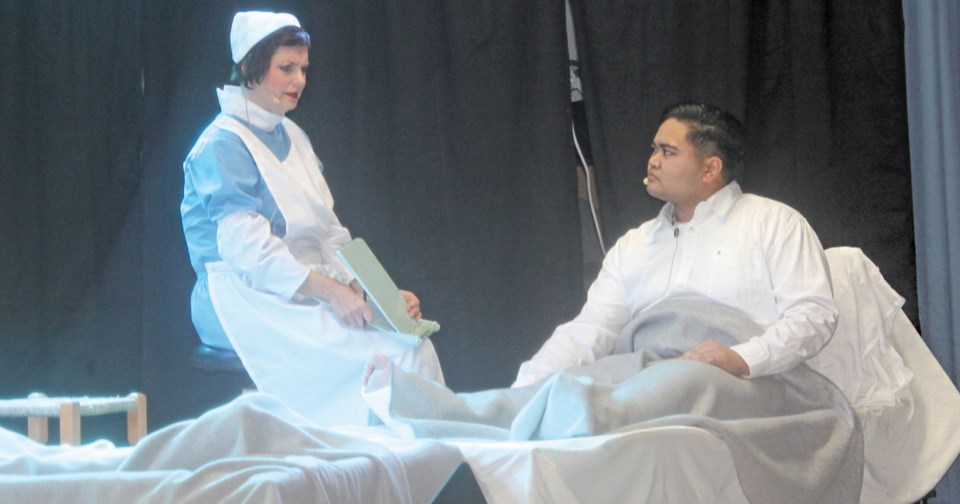NIPAWIN — A play by Doreen Bleich was shown at the Nipawin Legion to commemorate both the 100th anniversary of the end of the First World War, as well as the 90th anniversary of the Nipawin Legion.
“A couple years ago someone from the Legion here asked me if I would consider writing a play for their 90th anniversary, which is this year,” Bleich said. “So then when I got looking at some of the events and I realized it was also the 100th anniversary of the end of the First World War and I’d already done a play that was set in the Second World War so I thought, ‘I think I would like to do one that would also focus attention on the First World War and the fact that 100 years has passed since the end of that war.’”
While her play, Bravery Wears an Apron, is fictional, the areas surrounding the topic are real, and it carries a heavy focus on the work of the nurses throughout the war.
“The play is set in a field hospital in France during the First World War and, it covers approximately two and a half years from the start of the play to the end of it until the Armistice was signed,” Bleich said. “It features Canadian nurses who would have worked in that hospital and their, I would say adventures but I’m not certain that would be the right word – certainly their encounters with the wounded and also the British Sisters and other medical staff. It’s also their interaction with those people.”
Bleich didn’t want to just focus attention on the war, but on the forgotten parts and heroes of it.
“I also thought that the one thing that many of the shows, and documentaries and one thing and another that you see on TV and in the media generally focus on the soldiers and I really thought that there were certainly lots of Canadian women that volunteered in various areas of the military. I had read a book that was featuring a biography basically of a woman who was a nurse in the First World War and I thought, ‘why not focus our attention on the women for a change and not just the men?’.”
The nurses aren’t the only part of history she feels has been forgotten, but also the Chinese Labour Corps.
The Chinese Labour Corps were a real division formed by the British Army during the war. It was primarily made up of volunteer workers from China and Mongolia to serve in non-combatant roles.
“There’s another bit of World War I history that I was just not all that long ago made aware of and it’s something I have not met anyone yet who knew anything about the Chinese Labour Corps,” Bleich said. “So it’s not just the nurses who have been forgotten but so has the efforts of the Chinese Labour Corps.”
Her play has a fictional character from the Chinese Labour Corps who finds himself in France during the fighting.
The play was on Nov. 16 as part of the Nipawin Centennial Players Dinner Theatre.



